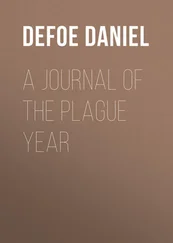“Welcome back to the world,” the pilot said. “You’re on your own now.”
Siddhu tossed his hazmat suit in a dumpster. He should set it on fire, he thought. He threw away the messenger bag that held his laptop and carried it with him as he walked up a road in an industrial part of Richmond. He would have called a cab if it didn’t mean waiting for half an hour. He wanted to move, to savour his freedom. He turned onto a road that opened up to farmland on both sides. The air was streaked with the scent of manure. Siddhu’s adrenalin tapered, and he started to feel cold.
Nothing had changed on the other side of the river. He walked until he reached a gas station where he could wash his face and buy a piece of beef jerky and waited there until a cab arrived. Siddhu spoke to the driver in Punjabi as they took an on-ramp onto the highway.
He double-tipped the final driver in the night’s succession of chauffeurs, then felt for the keys in his pocket—he’d kept them there the whole time he’d been at the hotel. The lights were out in the house, so he opened the door quietly. He wanted to wake up his wife and kiss his kids, but first he wanted to be clean from infection and not smelly. He threw his clothes in a garbage bag and placed them in a bin. After removing the spy store reading glasses, he climbed into the shower. He’d been imagining this shower—in this own bathroom—in the cab. The shower head spurted water on him, as it always did. The pressure was terrible. It would be heaven.
Through a crack in the shower curtain, he caught sight of Uma, entering the bathroom sleepy-eyed. When he pulled back the curtain, she screamed at the sight of her naked husband. They looked at each other in disbelief. For the last several months, they’d existed for each other only on screens. When he placed his hands on her face, she began to sob.
He tried to explain how he’d returned home with the compression of a haiku. “Made a deal with a smuggler,” he began. “Then a garbage truck, boat, taxi. Needed to shower first.”
“You smell terrible,” she said, laughing and crying.
For six months after grad school, Megan Tso volunteered at a hospice. She interviewed three dozen people as part of the program and collected the raw data of their lives. Most of these patients—even the teenagers—grew excited to name their childhood addresses and elementary schools. For some people, the act of reciting their parents’ names was enough to prompt tears. Soon afterward, they would open up about forgotten pets, long-suppressed traumas, old resentments.
From this experience, Tso honed that talent for getting people to reveal their interior lives to her. The dying spoke with no fear of consequences. She, in turn, knew that some of them wanted an exchange of personal information, and because they would carry her secrets to their graves, she freely shared her own story with them. She grew close to several people at the hospice and attended their funerals. At these services, family members approached her warily, treating her as an interloper. But in a matter of weeks, she’d learned more about their spouse or parent than they had ever dared learn, and soon family members brought her into conversation, wanting to know whether they had been bad-mouthed by the deceased.
In Vancouver, circumspection came easily for Tso. Everyone hid behind their masks but spoke candidly from behind them about their nightmare scenarios and theories, their sexual prospects, their survival strategies.
Her best friends in Vancouver were Grossman, Siddhu, and Rieux. When her ex-fiancé Markus re-entered her life, she had no desire to confide in them. She liked that they knew her in this vacuum. They were not acquainted with the jittery, self-loathing version of herself. She spoke to a friend in Los Angeles about Markus, who advised her to call the police. She was reluctant to do so. Markus had never threatened her with violence directly, but he trailed her and made it impossible to get beyond him. He would back off for months at a time if she seemed distressed enough by his stalking behaviour. He’d found a line to toe.
After he called, Tso messaged Grossman for permission to stay with her. She was invited over immediately, gathered her things, and threw her iPhone in the trash. The last time Markus found her, he had hacked her phone’s location settings.
Grossman, it turned out, was eager for company. While she had been resilient in the weeks following her father’s death, she experienced a setback after receiving a letter from Janet’s lawyer demanding the return of her work. This led to an angry phone call in which Grossman’s ex-lover denounced her as a parasite. “I was making such progress on the first sentence of my novel,” Grossman said, taking fresh towels into the ground-floor suite, “but now I just want to drink scotch and eat ramen.”
Her current plan was to focus on a new project: a performance space in Janet’s old studio, a tribute to her father. It was one of a spate of new businesses that had opened since the quarantine went into effect and people began a new age of soft lawlessness. This underground economy had been prompted by the run-up in prices, a quarantine-related reduction of the workforce, and an implicit relaxation of licensing requirements. People were working as amateur massage therapists and running restaurants from their dining rooms.
Tso entered Izzy Grossman’s old apartment and saw that most of his personal effects had not yet been removed. Black-and-white photos taken in Europe at the turn of the twentieth century still hung on the walls. The appliances, cupboards, and cookware in the kitchen were from the 1970s and were mustard-yellow and fake walnut. On a bookcase she found the collected novels of Leon Uris and James Clavell. She tried to sleep on his waterbed but found herself seasick.
She laid her blanket on the couch, remembering that he had fallen ill there. On a side table was a picture of Mr Grossman with his two daughters—Grossman’s half-sister as a teenager, Grossman as a toddler. She didn’t want a dead person staring at her, so she turned the picture face-down before she fell asleep.
In the morning, Rieux appeared at the front door. He’d taken the day off from the clinic and wanted to accompany her on her Sanitation League shift. He wondered why she’d gotten rid of her phone and checked out of the hotel room. She could have dodged the question today, but not indefinitely.
“My ex-fiancé has come to Vancouver,” she told him. “He’s been giving me trouble since we split a year ago.”
Rieux’s expression remain unchanged.
“It must be easier to come into the city than to leave it,” Rieux said. He waited a moment. Then he added, “Do you want to talk about it?”
She shook her head. “Maybe later.”
They spent their morning delivering meals. The last one had to be taken to a woman who lived on a houseboat on Granville Island. She was caring for her mother who had fallen ill but refused treatment. Tso had seen the old woman a couple of times in the past month, groaning from within her daughter’s bedroom.
The houseboat was clad in corrugated aluminum. The windows facing the icy-slick boardwalk were portholes. On the rooftop was a weather vane. The daughter welcomed them inside. “She passed away this morning,” she told them.
The houseboat had polished hardwood floors, a granite kitchen island, and a baby grand piano. The old woman’s body was still in the room behind a closed door. Her death was not unexpected, but it had been sudden.
“I guess you don’t have to come by tomorrow—to help us,” she told Rieux, who nodded gravely. Tso looked at the doctor but he offered no explanations. Then the idea of what “help” might have entailed fluttered against her mind. She fought back her reaction.
Читать дальше












